How a cattle sting operation in Loving County, Texas, snared Judge Skeet Jones
MENTONE, Texas — On a December day in 2021, Loving County Judge Skeet Jones, 71, climbed atop an oilfield tank surrounded by wide-open Texas desert dressed in a business suit and toting a pair of binoculars, hoping to spot an elusive black bull.
What Jones most likely didn’t realize from his steel perch as he scanned the horizon: He, too, was being watched as part of a cattle-rustling sting operation devised by special rangers with the Texas and Southwestern Cattle Raisers Association.
The backstory of what led to the arrests of Jones, a former sheriff’s deputy and two ranch hands in May is chronicled in a stack of warrants obtained by NBC News. The documents detail a yearlong investigation, replete with confidential informants and a sting operation involving a reddish-brown cow, her calf and the black yearling bull — all equipped by the special rangers with microchips.
The warrants allege that Jones and the ranch hands rounded up stray livestock in Loving and Pecos counties and sold them at auctions in Texas, Oklahoma and New Mexico without first notifying the Sheriff’s Office to find their rightful owners — a violation of a state law.

Jones, the scion of a prominent ranching family and the top elected official in this sparsely populated West Texas county for the past 15 years, is charged with three felony counts of livestock theft and one count of engaging in organized crime — potentially facing decades in prison if convicted. (Jones and the other defendants declined to comment. Jones’ lawyer did not return phone calls.)
But Jones’ supporters say he was set up. “There’s no question about that,” said Steve Simonsen, who is the Loving County attorney and married to a cousin of Jones’. “If you’re a special ranger and you’re really interested in stopping rustling, you don’t sneak out in the middle of the night and unload a bunch of cattle that you secretly microchipped,” Simonsen said.
Jeremy Fuchs, a spokesman for the Texas and Southwestern Cattle Raisers Association, a cadre of peace officers who specialize in agricultural crimes, said the organization stands by the arrests of the judge and the other defendants. Fuchs said the investigation is ongoing and could result in more charges.

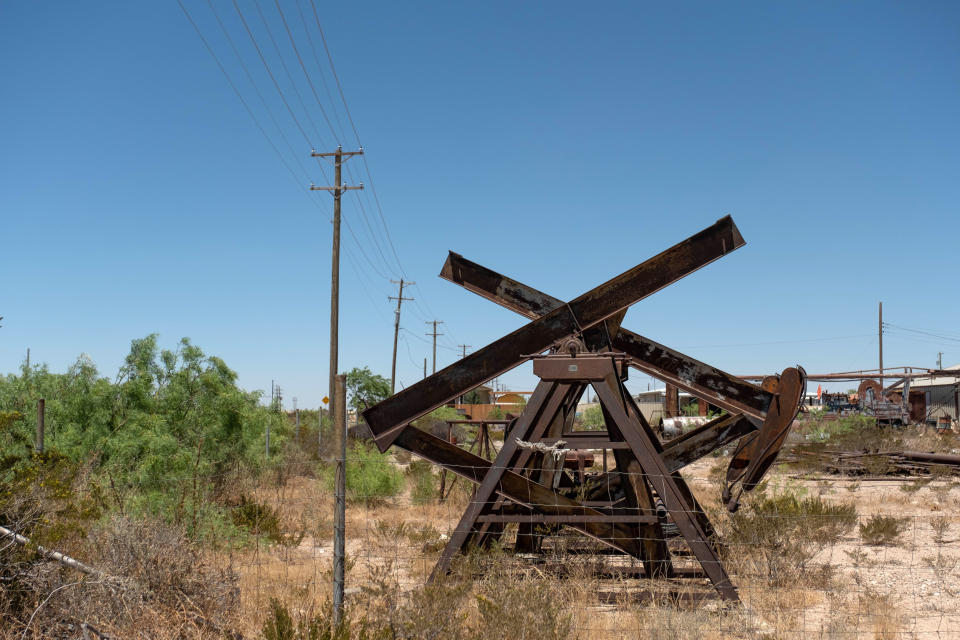
Randy Reynolds, the district attorney in charge of prosecuting felony cases, did not return phone calls.
None of the defendants have been indicted by a grand jury, which is the next step in the legal process. Loving County, the least-populated county in the continental U.S., had 57 residents as of the latest U.S. Census Bureau estimate. Simonsen said the county hasn’t successfully empaneled a grand jury in about a year.
The latest attempt on July 7 to get enough qualified grand jurors failed for two reasons, he said. Under Texas law, grand jurors cannot be related by blood or marriage. And they are required to reside within the county, which has become a flashpoint since the Loving County justice of the peace in May sent four prospective jurors — including Jones’ son and a county commissioner — to jail on a contempt order for allegedly not living there.

“Who wants to show up for jury duty, which a lot of people don’t really want to do anyway, and get a free trip to the jail house?” Simonsen asked.
Jones and his family members — through blood or marriage — have a tight grip on the local government, serving as judge, clerk, county attorney and constable. This fall, Jones is running unopposed for re-election, but some of his allies, including his sister, are facing challengers for the first time in years, amid heated debate over how the county should be run.
The story behind the cattle sting starts on March 2, 2021, when Special Ranger Marty Baker, 58, was dispatched from Midland, Texas, to Loving County to investigate the shooting deaths of five black stray cattle.
Baker, who declined to be interviewed, arrived to find Jones and his ranch hands loading the dead cattle onto a trailer to take them back to the P&M Jones Family Ranch. There is no indication from the records that the judge or the ranch hands had a role in the cow killings, which remain unsolved. (In Texas, the penalty for killing a stray cow is a felony with the same possible punishment as stealing one — up to 10 years in jail.)
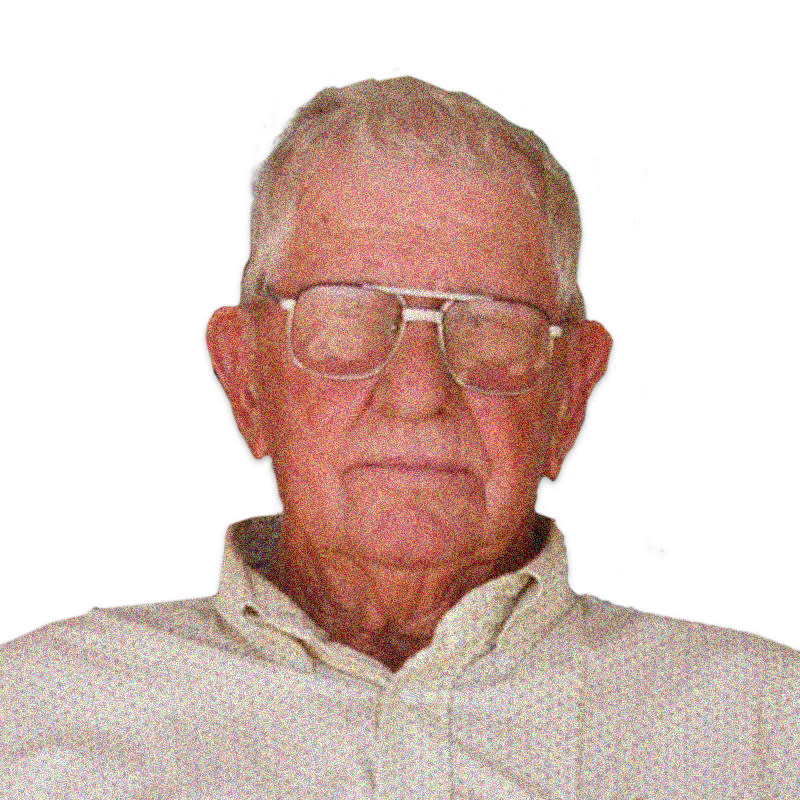
Baker wrote in the warrants that he had spoken briefly with the judge, whose late father, Elgin “Punk” Jones served as the sheriff for 28 years. Skeet Jones mentioned that he and his ranch hands catch stray cattle and sell them and donate the money to boys’ ranches in Texas.
“Some of the conversation seemed strange at the time,” Baker noted.
The next day, according to the warrants, Baker got a tip that Jones and the ranch hands had previously rounded up stray livestock to sell at auction without notifying the sheriff, as required by state law.
So Baker, a 39-year law enforcement veteran, started scouring livestock sale logs and called up Loving County Sheriff Chris Busse to make sure Jones and the ranch hands hadn’t reported any stray cattle to him, according to the warrants. No, the sheriff replied, he’d never gotten a report of stray cattle from anyone on the judge’s ranch, the records state.
Then, on March 8, 2021, a Texas Parks and Wildlife game warden contacted Baker. The game warden said he had a confidential informant who’d shared text messages from Jones, including one with a picture of a $2,720 check cut three days earlier at a livestock auction in Elk City, Oklahoma, for two steers and a black cow, according to the warrants.
It’s unknown if the two steers were strays, Baker wrote, but the judge piqued his suspicion about the black cow by referring to it as a “wild cow” in a text message.
Spring turned to summer as Baker built his case, chasing new tips. Using information from informants, he expanded his investigation to include Leroy Medlin, a former Loving County Sheriff’s deputy who’d been fired from the San Antonio Police Department and was working as a part-time ranch hand for Jones.
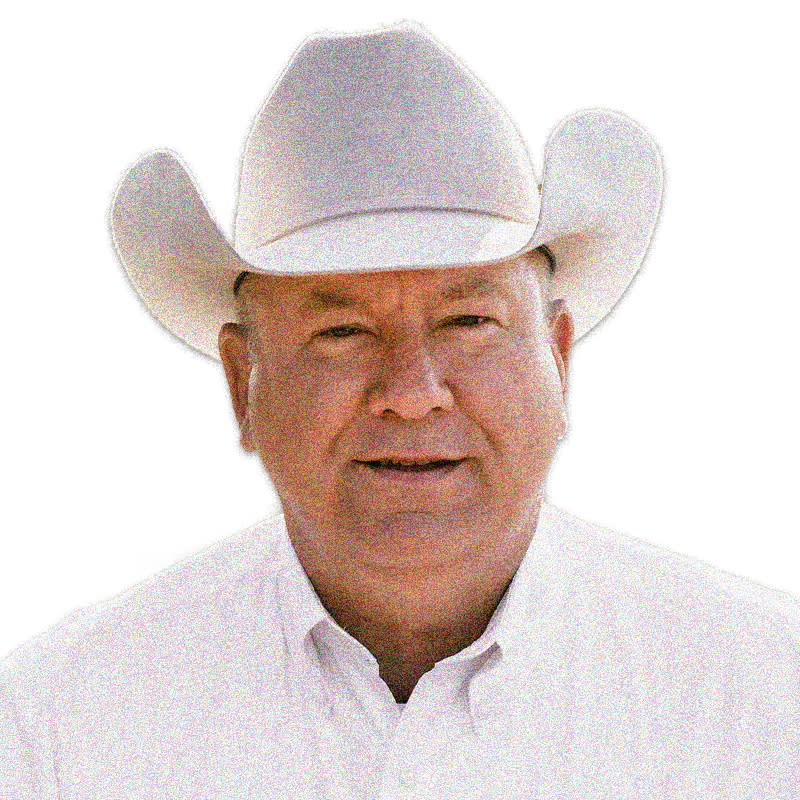
Baker alleged in the warrants that Medlin, 35, spotted three bulls and a heifer without markings roaming near the Pecos River in June in Reeves County. After trying fruitlessly to catch them by putting out feed as bait, Jones and Medlin and the other ranch hands rounded them up in September with the help of a helicopter. Jones sold the cattle at auction in New Mexico and sent the money to a boys’ ranch in Amarillo, according to the warrants.
As Baker and other special rangers investigated, they also laid the groundwork for their sting operation. Baker obtained a brownish-red cow and calf and a black bull and equipped them with microchips. He got permission from a landowner to turn them loose. And on Oct. 18, that’s what he did, setting the operation into motion.
Weeks passed. Then Baker got a tip on Nov. 4 that the reddish-brown cow and her calf had been captured and were penned up on the Joneses’ family ranch, the warrants state. He later learned that ranch hand Cody Williams, 31, caught the cow, according to the warrants. Jonathon Alvarado, another ranch hand, tried but failed to rope the calf. So they put the mother in the pen and let her call her calf up, so they could catch it.
A week later, a Texas and Southwestern Cattle Raisers Association market inspector told Baker the cows had turned up at the Big Spring Livestock Auction in Big Spring, Texas, about two-and-a-half hours away. Baker made it over there before they could be sold, he wrote.
“I positively identified the pair as being the same reddish-brown cow and calf I had released in Loving County,” he wrote.
But for weeks, the black bull continued to elude Jones and his ranch hands, even though they put out feed and water, Baker wrote. Jones climbed atop the tank battery in December, trying to spot him. In early January, they had a solid sighting on the nearby Wheat Ranch, owned by the family of a legendary wildcatter, J.J. Wheat.
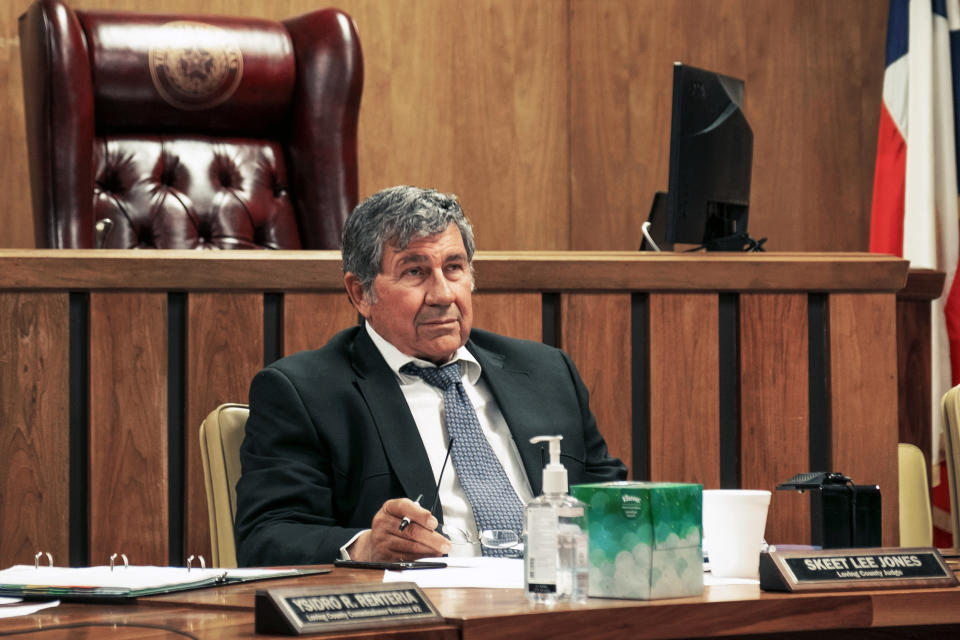
Jones called up Alan Sparks, 64, the Wheat Ranch foreman, and asked for permission to try to catch the black bull. The Wheat Ranch no longer runs cattle, Sparks said. “Skeet, he’s not ours,” Sparks recalled saying in an interview with NBC News. “You go ahead.”
Alvarado, Jones’ ranch hand, roped the bull in a pasture and helped load him into a trailer. (Alvarado later told Baker he’d checked the bull for markings and brands and there were none.)
Three days later, Sparks saw the judge at the courthouse and they chatted briefly about the bull, Sparks said. Sparks recalled the judge saying, “Well, he’s going to market.”
Sparks, who’s lived in Loving County for more than three decades, said the first step after finding cattle is clear: “You turn them over to the sheriff.”
Asked if that’s common knowledge, Sparks said: “He’s a judge! He knows.”
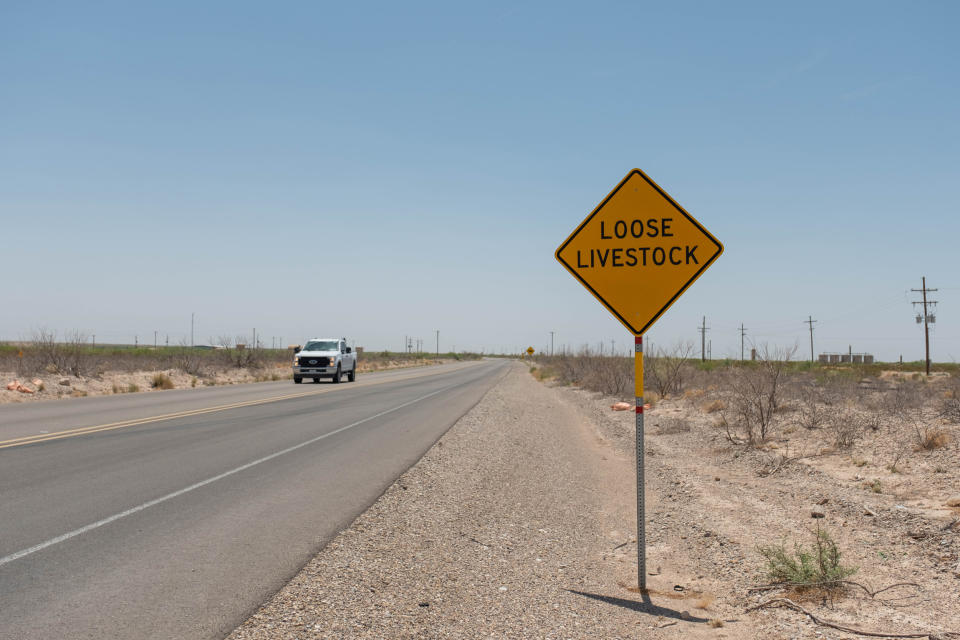
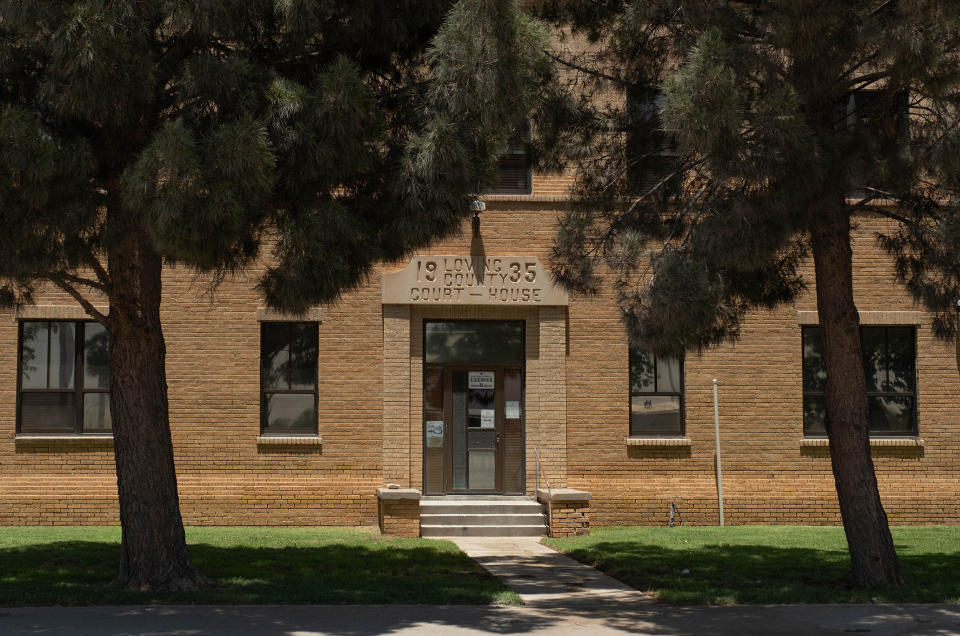
On Jan. 6, the same day that Sparks and Jones chatted at the courthouse, Baker got a tip that the black bull was en route from Jones’ ranch to the Big Spring Sale Barn.
When ranch hand Cody Williams pulled up at the barn hauling the bull, Baker was waiting. Williams told Baker the bull was feral and came from the river, according to the warrants. Baker asked if they’d contacted the sheriff’s office and Williams replied that it was above his pay grade.
About two weeks later, Baker asked Williams to come to the sheriff’s office for an interview. Williams arrived with Jones, who asked to talk to Baker.
Baker wrote in the warrant that Jones told him during the interview at the sheriff’s office that “his understanding of the estray law is that if cattle are not marked, anyone can claim them.”
That’s wrong, Baker told the judge.
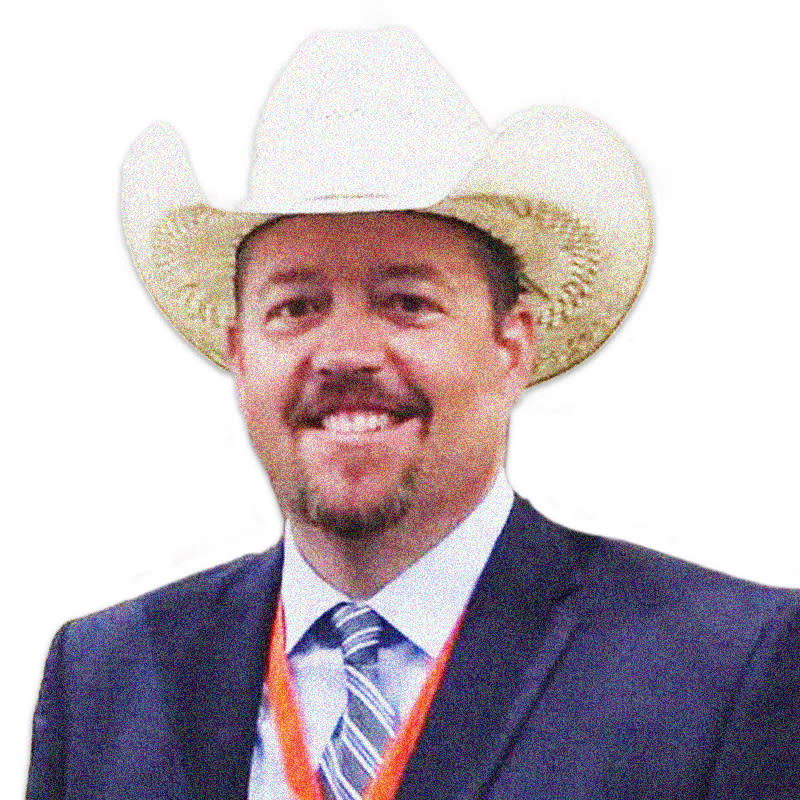
Jones told Baker the sheriff had given him permission to take strays to sale as long as they weren’t marked or branded. Busse, the sheriff, denied that to Baker. In an interview with NBC News, Busse reiterated the denial, saying it was “100 percent false. I never, never, ever had a conversation about stray cattle with the judge.”
Baker’s conversation with the judge turned to the black bull. Why try to catch him if it was so hard? Baker asked.
They were afraid the bull would get in with their cattle, Jones replied. And the bull was eating his grass, he added.
Baker took his case to a justice of the peace in Midland, nearly 100 miles away from Loving County, who issued the warrants for Jones, Medlin, Williams and Alvarado. In May, they all were booked into Winkler County Jail and released later the same day on bond.
Baker recently was appointed police chief in Coleman, Texas — his hometown — and left his job as a special ranger, though Fuchs said Baker will still see this case through.
According to the warrants, the reddish-brown cow and calf and the black bull in the sting operation were “taken to an undisclosed location to be cared for.”

